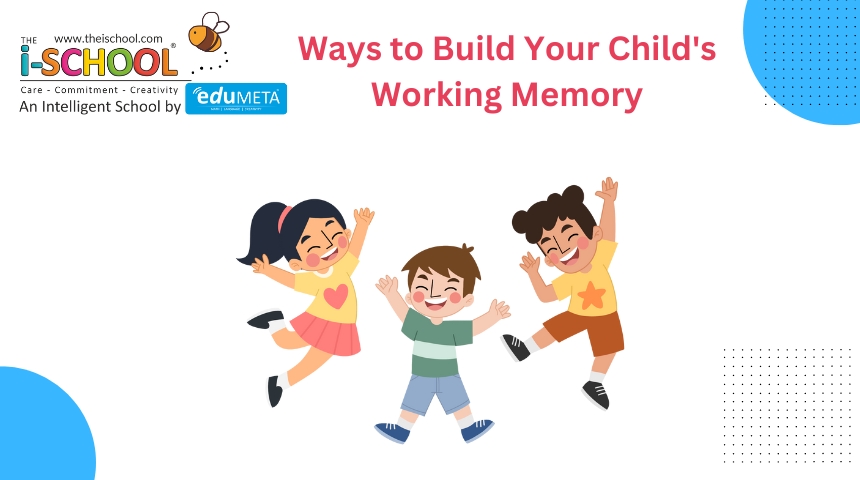Ways to Build Your Child’s Working Memory

Working memory is a crucial cognitive skill that allows us to hold and manipulate information in our minds over short periods. For children, strong working memory skills are essential for learning, problem-solving, and performing everyday tasks. Here are some effective strategies to help build and strengthen your child’s working memory.
1. Engage in Memory-Boosting Activities
Games and Puzzles:
- Memory Games: Play games like “Memory Match” or “Simon Says” to enhance memory skills.
- Puzzles: Engage your child in jigsaw puzzles, Sudoku, or crossword puzzles to improve problem-solving and memory.
Benefits:
- Improves concentration and focus
- Enhances recall abilities
- Encourages strategic thinking
2. Encourage Active Reading
Reading Comprehension Activities:
- Summarization: Ask your child to summarize a story or a chapter they have read.
- Questioning: Pose questions about the story to stimulate thinking and recall.
- Visualization: Encourage your child to visualize scenes and characters from the book.
Benefits:
- Enhances understanding and retention
- Develops critical thinking skills
- Promotes active engagement with the text
3. Use Mnemonic Devices
Techniques:
- Acronyms: Create acronyms to help remember lists or sequences (e.g., HOMES for the Great Lakes: Huron, Ontario, Michigan, Erie, Superior).
- Rhymes and Songs: Use rhymes or songs to make information more memorable (e.g., “Thirty days hath September…”).
- Chunking: Break down large pieces of information into smaller, manageable chunks.
Benefits:
- Simplifies complex information
- Enhances recall through association
- Makes learning fun and engaging
4. Practice Repetition and Review
Daily Practice:
- Repetition: Encourage your child to repeat information aloud or write it down multiple times.
- Review: Schedule regular review sessions to reinforce previously learned material.
Benefits:
- Strengthens neural connections
- Increases long-term retention
- Builds confidence in recalling information
5. Incorporate Physical Activity
Movement-Based Learning:
- Active Games: Play games that involve physical movement, like hopscotch or jumping jacks, while reciting facts or spelling words.
- Dance and Exercise: Combine learning with dance routines or exercise sequences to make it interactive.
Benefits:
- Enhances brain function through increased blood flow
- Improves concentration and attention
- Makes learning enjoyable and dynamic
6. Create a Structured Environment
Organizational Skills:
- Schedules and Routines: Establish consistent schedules and routines to help your child manage tasks and time effectively.
- Visual Aids: Use calendars, charts, and checklists to keep track of assignments and activities.
Benefits:
- Reduces cognitive load by minimizing distractions
- Promotes independence and responsibility
- Provides a sense of stability and predictability
7. Use Technology Wisely
Educational Apps and Tools:
- Memory Apps: Utilize apps designed to enhance memory skills, such as Lumosity or CogniFit.
- Interactive Learning: Incorporate interactive games and digital flashcards to make learning engaging.
Benefits:
- Provides personalized learning experiences
- Tracks progress and identifies areas for improvement
- Offers a variety of activities to suit different learning styles
8. Encourage Mindfulness and Relaxation
Mindfulness Practices:
- Meditation: Introduce simple meditation techniques to help your child relax and focus.
- Deep Breathing: Practice deep breathing exercises to reduce stress and enhance concentration.
Benefits:
- Improves focus and attention
- Reduces anxiety and stress
- Enhances overall cognitive function
Conclusion
Building your child’s working memory is essential for their academic success and everyday functioning. By incorporating these strategies into your daily routine, you can help your child develop strong memory skills that will benefit them throughout their lives. Remember, patience and consistency are key, and every small effort contributes to significant improvements in their cognitive abilities.
